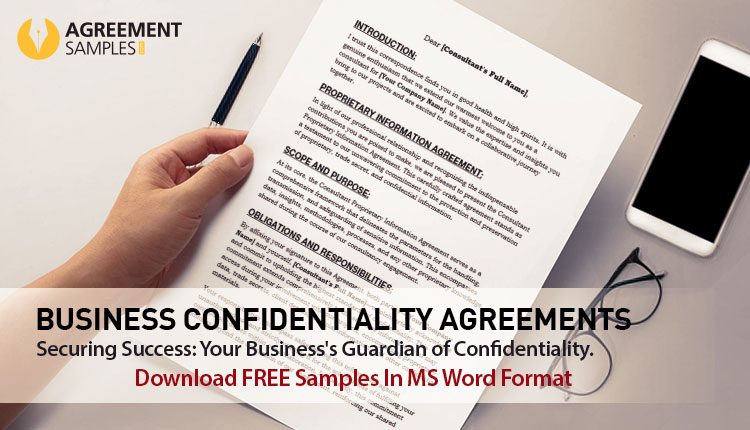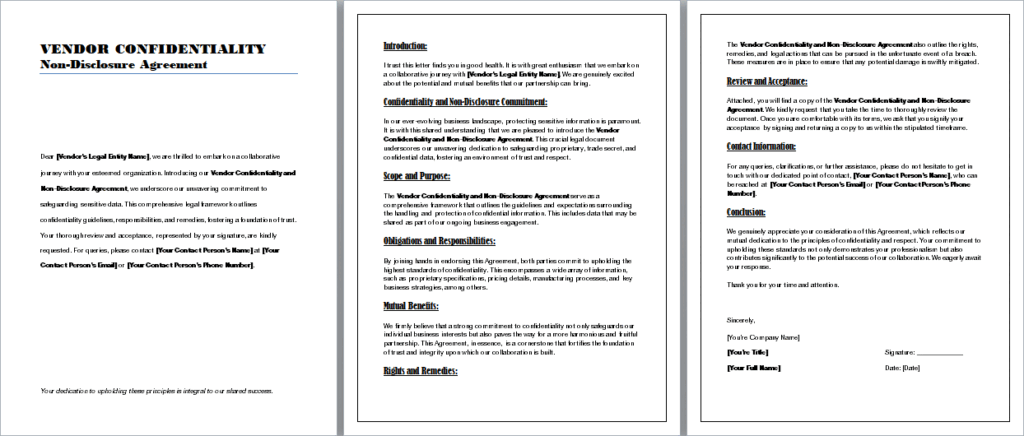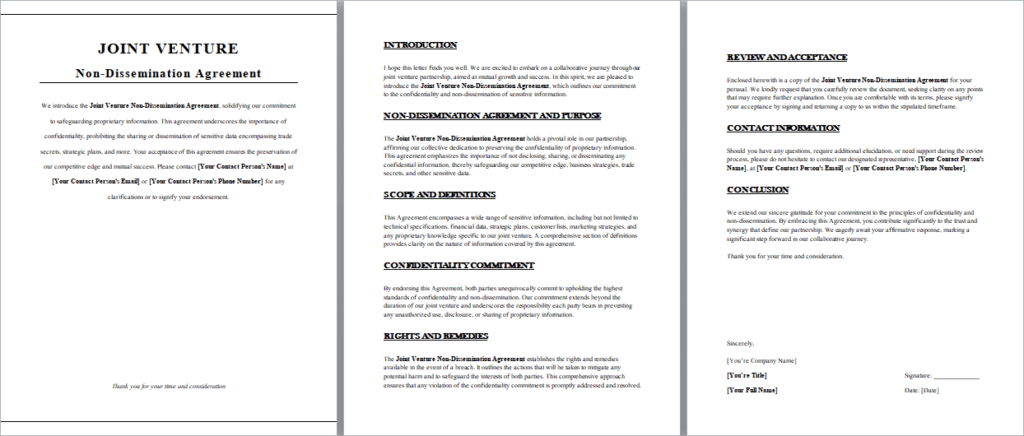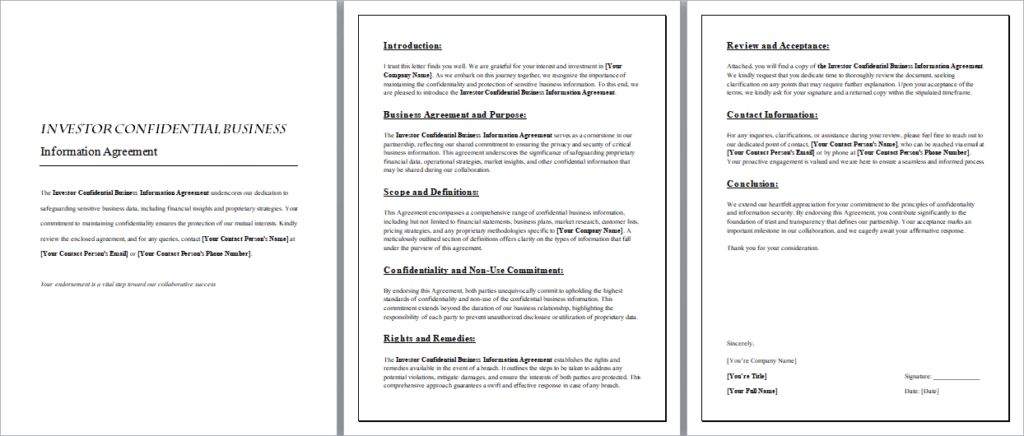Protect your business and simplify your work — download your free Independent Contractor Agreement template today.
Step into business partnerships with confidence, knowing your confidential information is protected by our Business Confidentiality Agreements. These agreements act as your safeguard, ensuring your important details stay safe.
They aren’t just complicated legal terms—they provide simple rules for handling sensitive information. Whether you’re an experienced entrepreneur or just starting, our agreements help you navigate partnerships while keeping your business relationships strong.
Discover the magic of safe teamwork with our carefully crafted Business Confidentiality Agreements. Grab your free templates now, formatted in user-friendly MS Word with sample data included. Secure your business today – your data deserves top-notch protection.
Often referred to as an NDA, a business confidentiality agreement is a straightforward contract that states, “What we share stays between us.” Businesses use it when they need to provide sensitive information, such as client lists, pricing, or new ideas, to partners, contractors, or employees.
It ensures that data is kept confidential, establishes explicit guidelines for its use, and fosters mutual trust. Consider it a safety net that safeguards your company and maintains the integrity of your business relationships.





A Business Confidentiality Agreement helps protect important business information. It includes key elements like:




Understanding the difference between employees and independent contractors is key for businesses.
Simply put, employees are part of the company workforce, while contractors function as independent specialists.

Every business runs a little differently, so it’s worth taking a few minutes to make this agreement fit your situation. Customizing the template helps avoid confusion later and makes sure both sides are protected. Here’s how you can do it:
By personalizing the template, you create an agreement that feels fair, clear, and ready for real-world use.

It’s a legal contract between a business and a contractor that outlines the scope of work, payment terms, and responsibilities without creating an employer-employee relationship.
It protects both parties by clearly defining expectations, reducing the risk of disputes, and ensuring compliance with labor and tax laws.
Yes. Once signed, it is a legally enforceable document, as long as it follows applicable laws.
Key elements include the parties’ names, scope of work, payment terms, deadlines, confidentiality clauses, and termination conditions.
Not always. Templates can be a great start, but having a lawyer review your final draft is recommended for complex projects or legal compliance.
← Previous Article
7+ Free Month-to-Month Rental Templates Make Moving Easy!